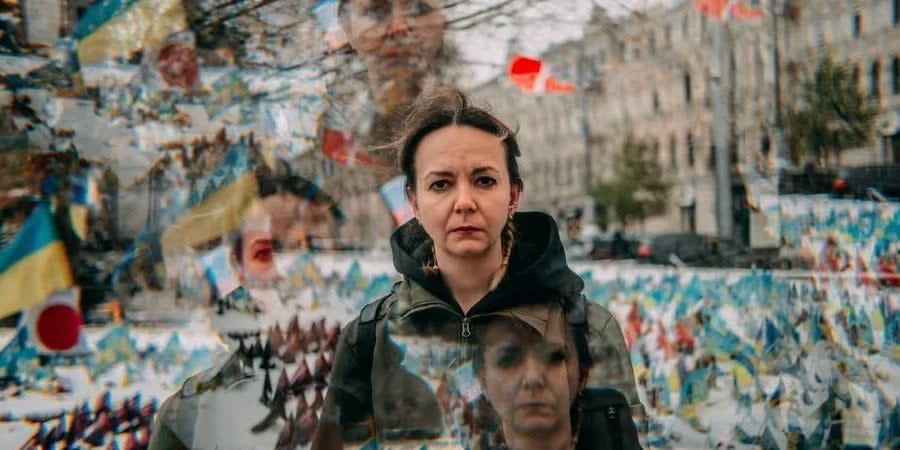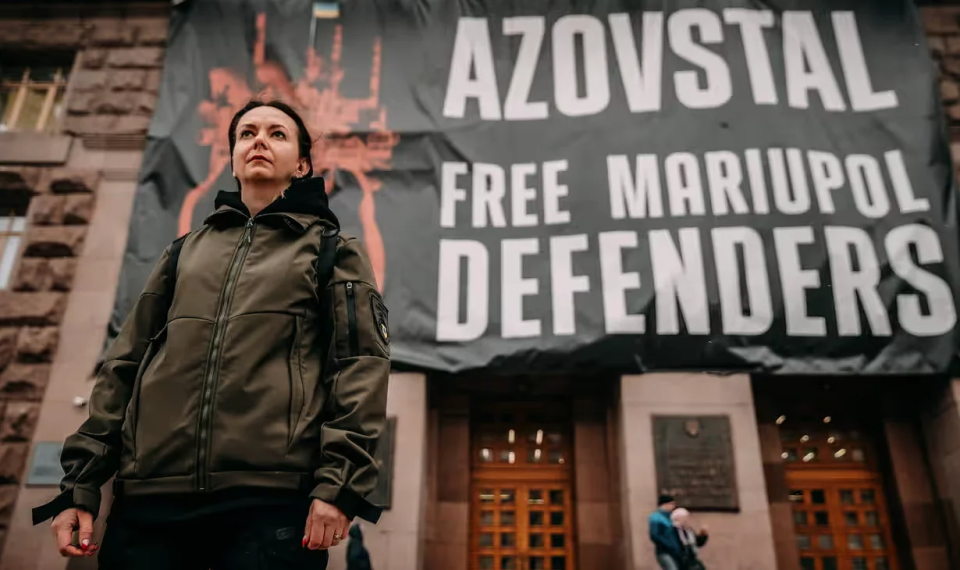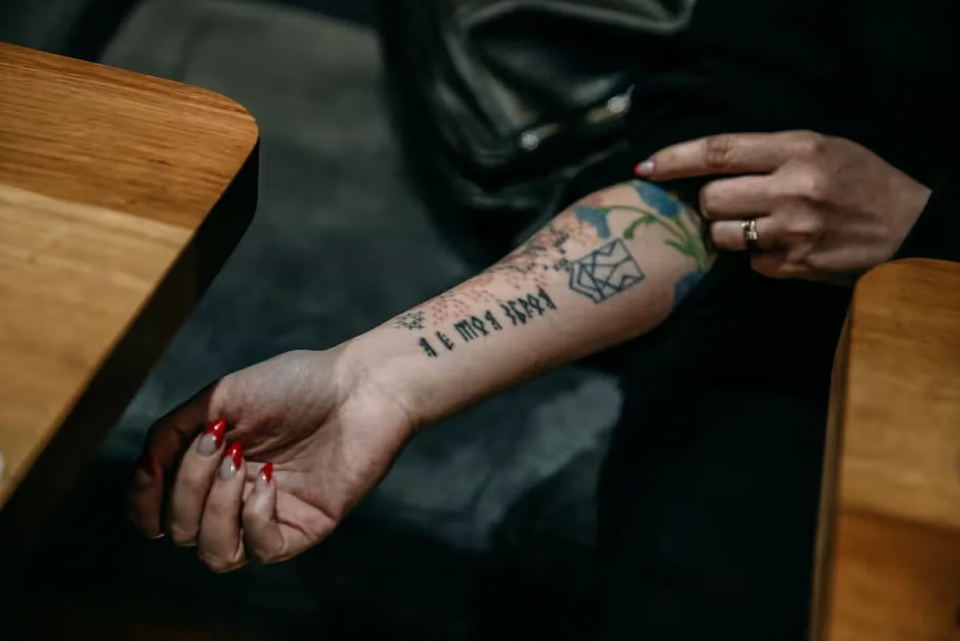From Azovstal siege to Taganrog hell: Valeria Subotina’s journey through captivity

Ukrainian defender Valeria Subotina, subjected to 11 months in Russian captivity, revealed in the UK newspaper The Guardian on Dec. 21 the harrowing experiences of physical, moral, and psychological abuse she endured alongside her fellow military personnel.
Subotina, a professor from Mariupol and a press officer in the Azov Regiment, got married to her boyfriend Andriy during the siege of Azovstal. Shortly after, Andriy died in an enemy attack, and Valeria was captured after Ukrainian defenders left Azovstal.
Read also: POW reveals lack of drinking water, logistics supplies, other issues in Russian army
Like many others, she was taken to the Olenivka prison, where chambers designed for two housed over ten women. There, she spent 41 days.
“There was no physical violence against women, but we heard the cries of men from the second floor. Once we heard really terrible screams, and in the morning, we saw a body being dragged out. Women were often sent upstairs to wipe off blood,” Subotina said.
When Russia targeted the Olenivka prison with a missile strike, Subotina heard the explosion but was unharmed.
In late September 2022, guards tied the prisoners’ hands, tightly covered their eyes, and placed them in a truck, according to Subotina’s recollection. She was transported to the Taganrog prison, where conditions were supposedly better than in Olenivka – the cells were less crowded, with a toilet behind a door.
However, a daily routine of systematic humiliation began. Prisoners, including Subotina, were allowed to walk only in the “swan” pose – hands clasped behind the back and raised high, head bowed low. Laughter and speaking Ukrainian were strictly prohibited. Subotina was given a prison uniform of XXL size and size 48 shoes.
In one of the initial days, female inmates were taken to a room, stripped, and beaten with fists and sticks.
“They did it carelessly, they didn’t care about the bruises. I realized that it was a bad sign, that we would be there for a long time,” recalled Subotina.
Twice a day, female cells underwent searches. When they exited, guards kicked them, forced them to squat, or sing the Russian anthem.

The screams from neighboring cells indicated that men were subjected to more intense physical torture, according to Subotina.
Read also: Ukraine returns 100 combatants in POW exchange
Prison guards from various parts of Russia, particularly brutal towards Azov captives, conducted interrogations mostly during the day. However, one evening, Subotina was dragged from her cell to the basement, where she was beaten.
When her eyes adjusted to the darkness, she saw eight men in the room observing her. The air reeked of alcohol. One of the men ordered her to undress completely.
“You wanted to see a real Azov member, sir, well, here she is,” one of them said.
“She’d look good with a Russian flag tattooed here,” another said, pointing to Subotina’s genitals and laughing. Despite her fear, she remained indifferent, believing that showing fear would worsen the situation.

The FSB official, to whom the guards presumably reported, berated the prison staff: “She needs to be fed more and given razors. She’s exhausted and disgustingly hairy.” After these words, Subotina was allowed to get dressed.
Following these events, the interrogations involving Valeria lasted for hours. They began with aggressive attitudes and progressed to propositions.
Read also: Defender recounts how he survived Russian anti-tank missile hitting his vehicle
“You have a doctorate, you’re respected; maybe we’ll make you the university rector. An exchange won’t happen anytime soon. So, you can either rot in this prison forever or accept our offer,” they proposed to the woman during one of the interrogations. She refused.
Shortly after this, Subotina was told to get dressed for another transfer. Blindfolded again, she was thrown into a prison truck and later placed on a plane. She later learned that it landed at an airport in Belarus. From there, she took a bus to the Ukrainian border, experienced the long-awaited exchange, and entered a lengthy rehabilitation period after captivity.
“After 11 months, I was in a terrible state. I just can’t imagine what it’s like for people who will be there for years,” Subotina said.
We’re bringing the voice of Ukraine to the world. Support us with a one-time donation, or become a Patron!
Read the original article on The New Voice of Ukraine

